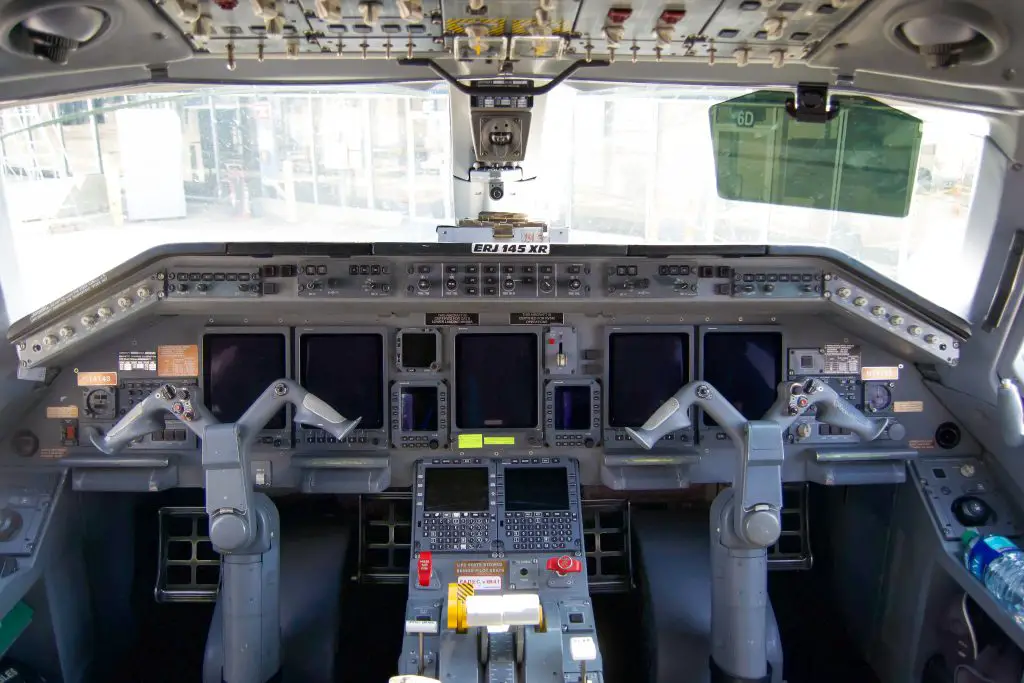By John Flett
Bill Raising Pilot Retirement Age to 67 Reintroduced in U.S.
A bill seeking to address flight cancellations, delays and service disruptions attributed to pilot shortages was reintroduced onto the United States Senate and House floors this week. The Let Experienced Pilots Fly Act ‘raises the mandatory retirement age for commercial pilots from 65 to 67 while maintaining the requirements for first-class medical and training certifications.’ No changes to the qualifications required to become a pilot are included in the bill but it does require those pilots over the age of 65 to renew their first-class medical certifications every six months.
Senator Joe Manchin from West Virginia introduced the bipartisan act in the Senate stating: “Our country continues to face a severe pilot shortage that has led to recent spikes in flight cancellations and delays, disrupting travel plans for millions of Americans. In West Virginia, our airports are our gateways to the rest of the world, and unfortunately, we have lost a number of flights over the last year due to these shortages.”
“I’m proud to introduce this bipartisan legislation to raise the mandatory retirement age for commercial pilots from 65 to 67, while maintaining the current requirements for first-class medical and training certifications,” said Senator Manchin. “This commonsense reform will help ensure air service is safe, reliable and efficient while addressing the pilot shortage.”
Introducing the Let Experienced Pilots Fly Act of 2023 onto the House floor Republican Congressman Troy E. Nehls said: “I’m proud to reintroduce this bill in the 118th Congress to address the glaring pilot shortage affecting Americans and airlines nationwide. We must prioritize the safety and effectiveness of airline travel to ensure that no travel disasters happen and that every person flying makes it home to their families.”
A Republican-sponsored bill had previously been introduced into congress in the summer of 2022 but had stalled. The current retirement age of 65 was set in 2007 when the age was raised from 60, an age that had been set back in 1960. The Air Line Pilots Association (ALPA) had initially opposed the proposed change that came into effect in 2007 but, according to ABC News, ALPA reversed its position in 2007 and urged then-President George W. Bush to sign the bill when approved.
ALPA is opposing the Let Experienced Pilots Fly Act of 2023 issuing a statement on Friday. ALPA President Capt. Jason Ambrosi stated: “This legislation is a solution in search of a problem. Raising the retirement age would only increase costs for airlines, worsen the post-COVID training backlog by using much-needed training cycles to train pilots over 65 who would be limited to domestic operations, and introduce unnecessary risks to passengers and crew alike. That’s why major airlines and a significant majority of pilots and passengers oppose this move. We are disappointed by the introduction of this misbegotten bill that betrays an understanding of how the airline industry works and will create more problems for air travel.”
Support for the bill has been forthcoming from the Regional Airline Association (RAA). “Raising the pilot retirement age keeps experienced pilots—particularly captains—in place and will have an immediate, positive impact on the pilot shortage,” said RAA President Faye Malarkey Black. AINOnline reported Black as saying: “Already, 324 airports have lost an average of one-third of their air service and 53 airports have lost more than half of their air service. Fourteen airports have lost all flights.”
The National Air Carrier Association (NACA) which represents ‘a diverse group of air carriers, providing passenger and cargo, scheduled and charter services’ also came out in support of the legislation. NACA stated that ‘with more than 3,000 pilots taking early retirement packages during the COVID-19 pandemic, and an additional 12,000 pilots expected to retire over the next five years, this timely legislation will provide some near-term relief.’
NACA also cited ‘an expected shortfall of 28,000 pilots by the end of the decade, Congress should take significant steps to boost the pipeline of commercial pilots. Specifically, we urge Congress to enact the “Let Experienced Pilots Fly” Act as part of the upcoming FAA reauthorization legislation, along with modernizing flight training requirements to provide additional credit for time spent on the most advanced, state-of-the-art flight simulators, and making FAA-certified flight education and training expenses eligible for federal student loans.’



